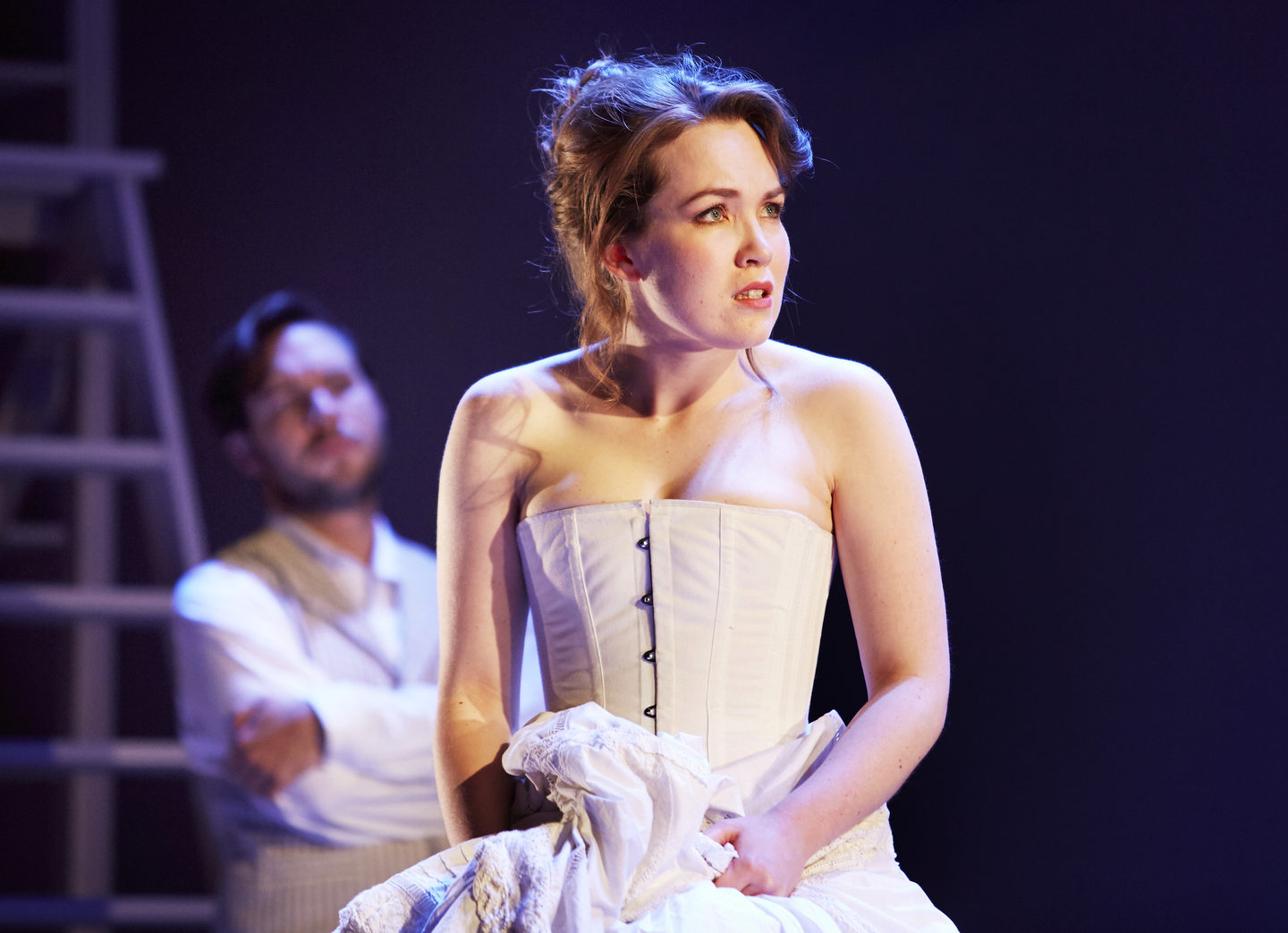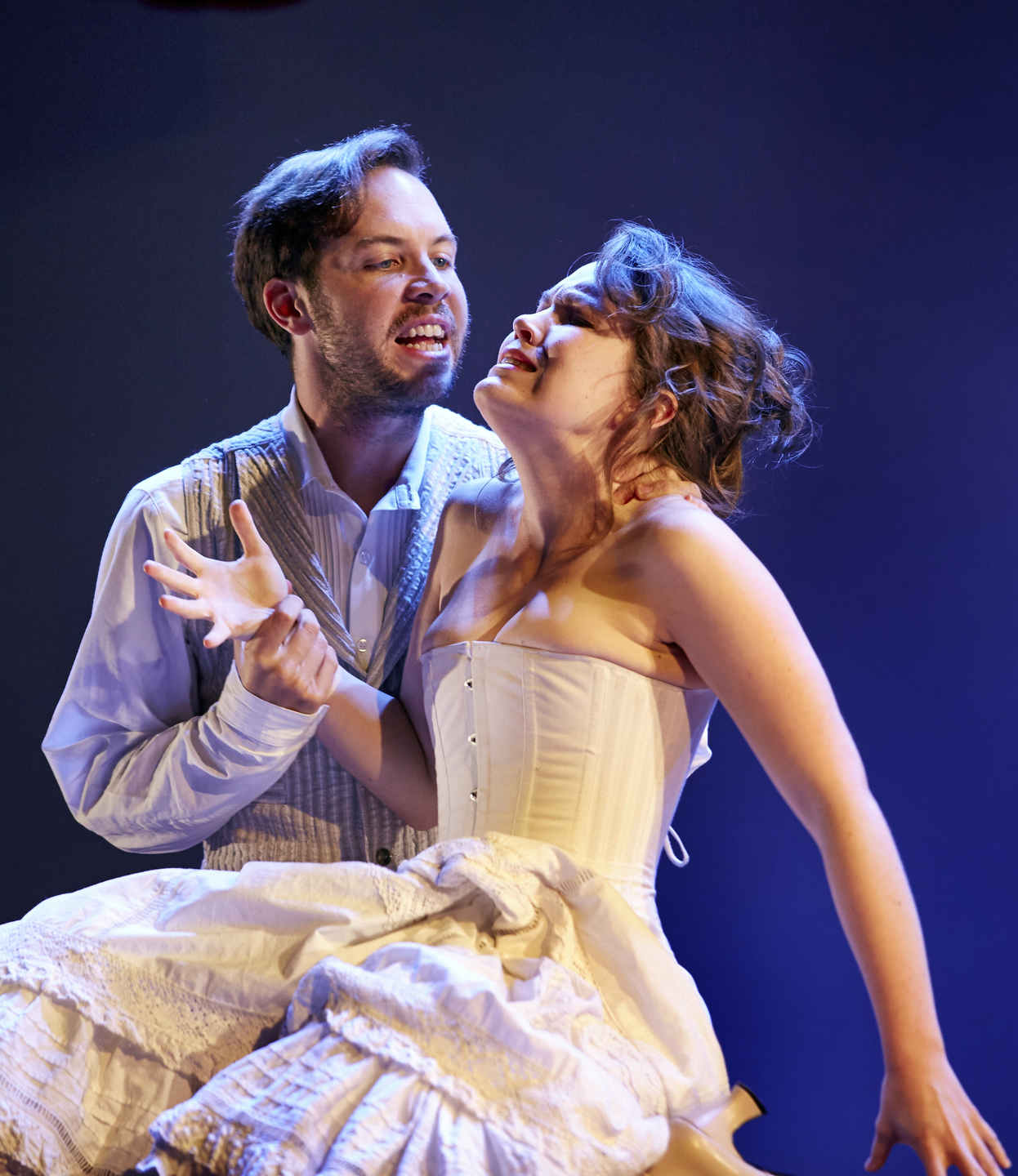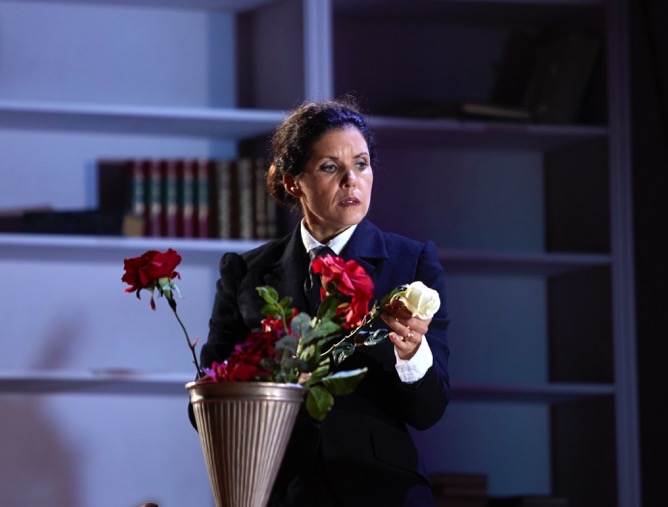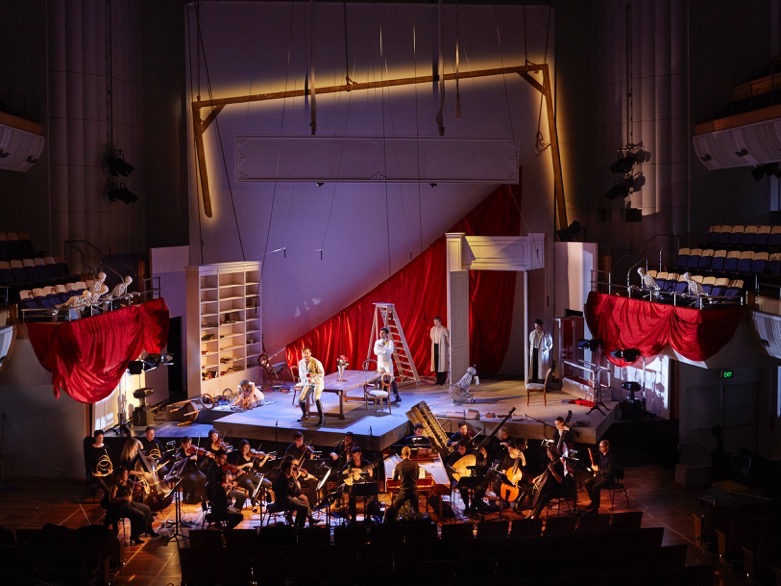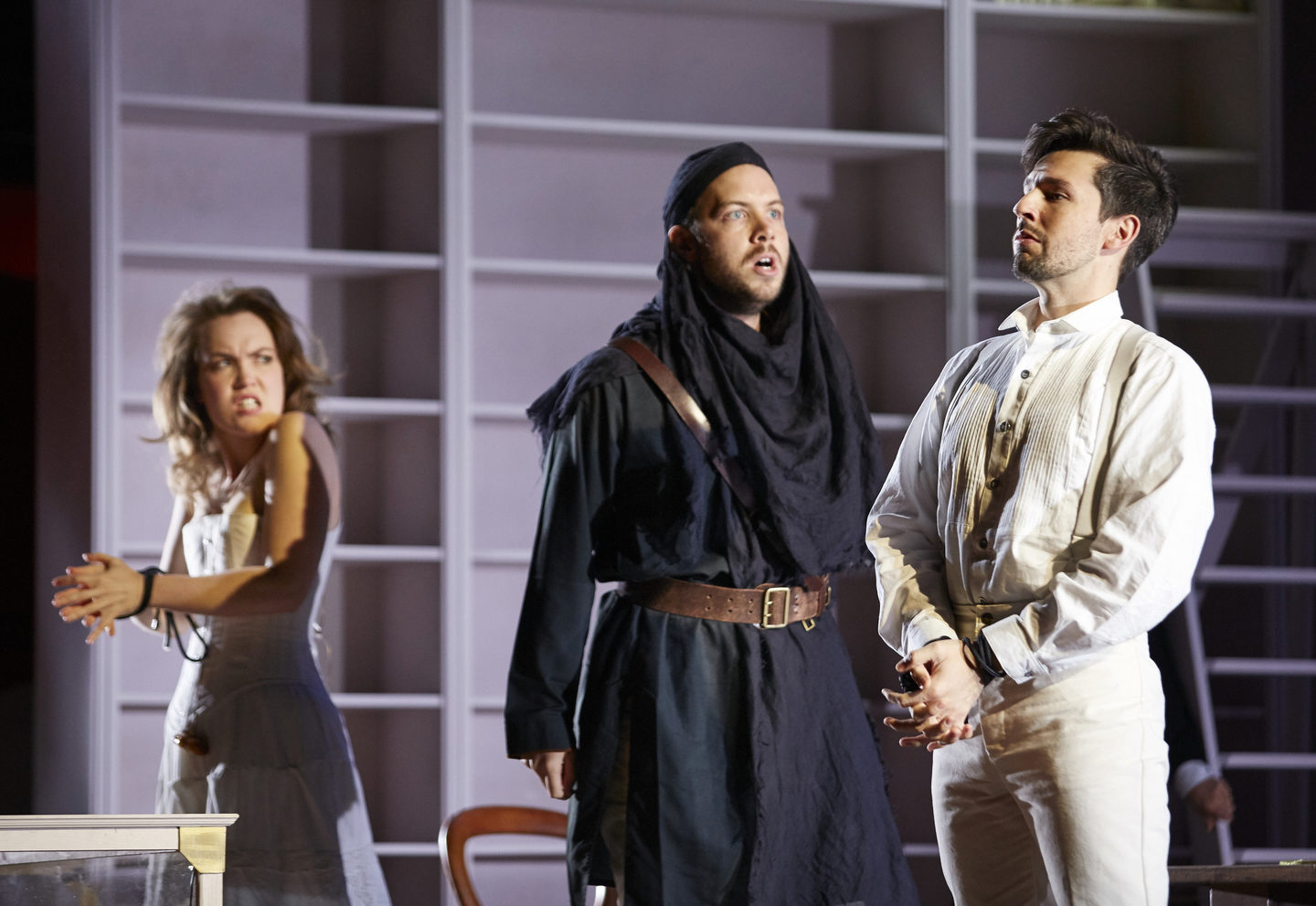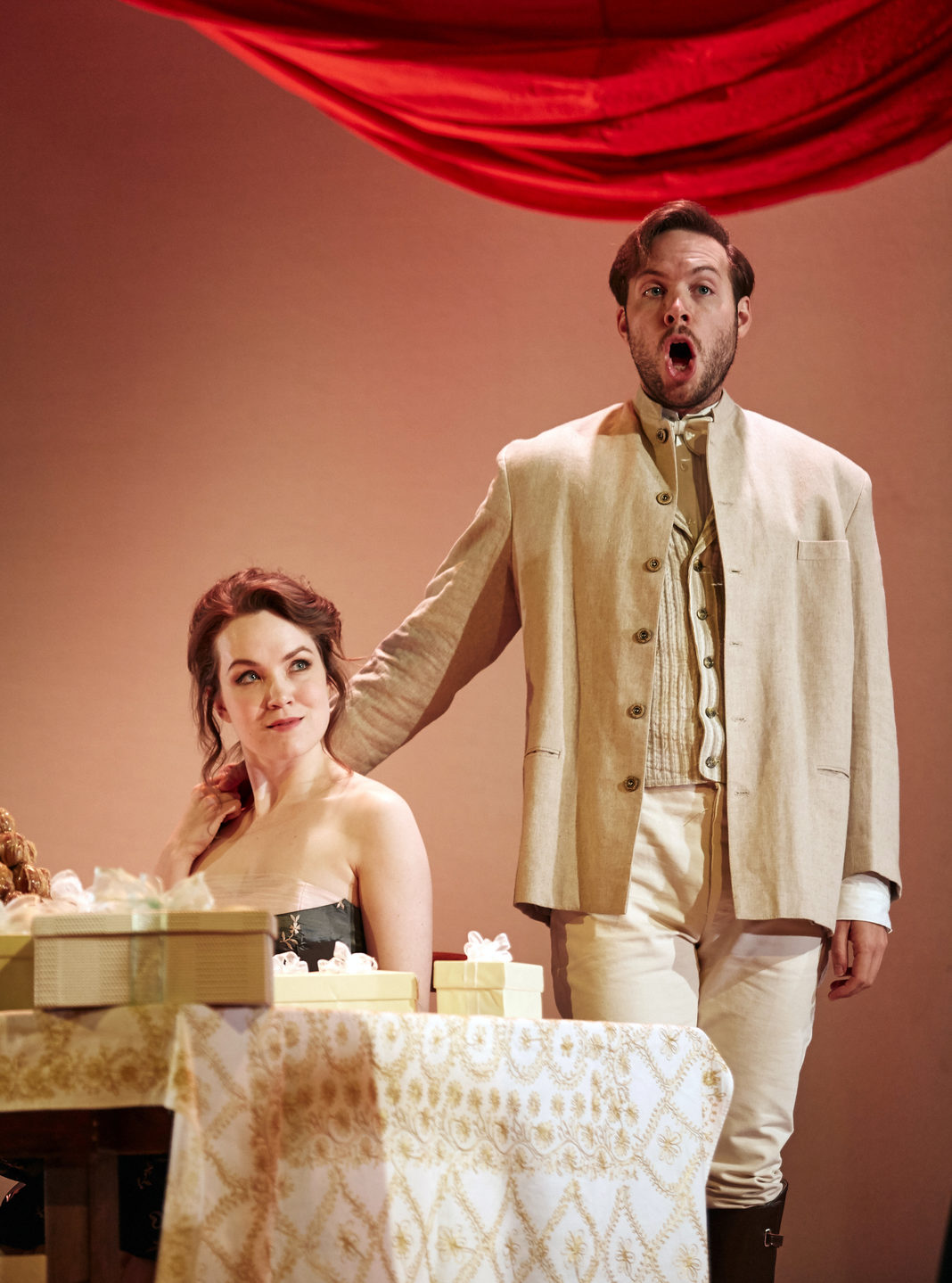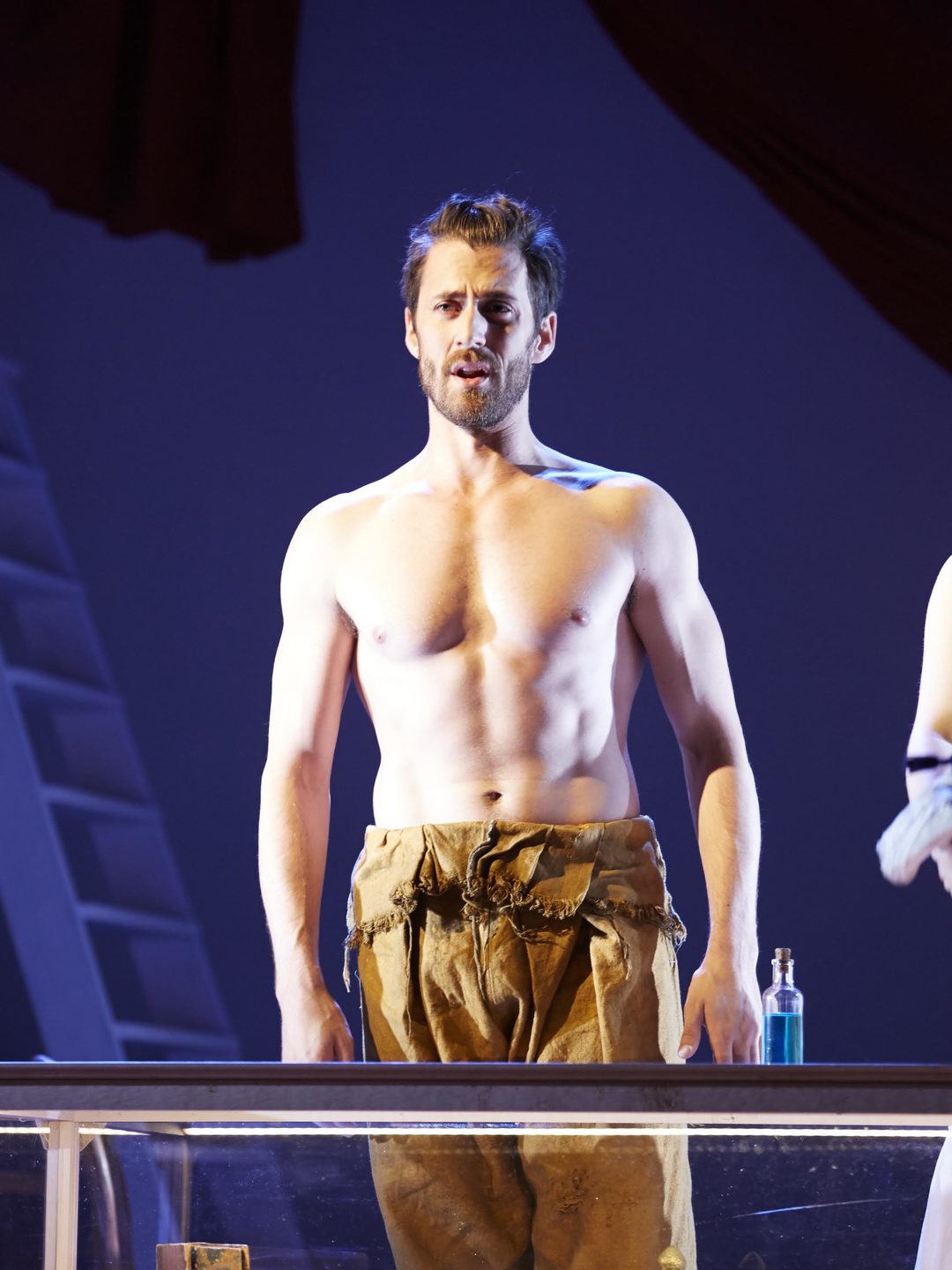Bajazet productions pics. Photos by Keith Saunders.
Bajazet
libretto by Agostino Piovene
Presented by Pinchgut Opera in the intimate surrounds of City Recital Hall, in just four performances, Bajazet will change the way you see opera.
July 4, 5, 7 & 8 2015
City Recital Hall Sydney
Vivaldi's Bajazet
Performed for the first time in the Southern Hemisphere, Vivaldi's passionate and powerful BAJAZET is the latest Baroque masterpiece to be rediscovered by Pinchgut Opera.
This rarely performed operatic gem, premiered in Verona in 1735, features a brilliant array of arias designed to showcase the top singers of the age: from dazzling vocal fireworks to sublime melodies of exquisite beauty and tenderness.
REVIEWS
READ
1] The Story
Tamerlano, Emperor of the Tartars, has conquered Bajazet, Emperor of the Turks. Tamlerlano loves Bajazet's daughter Asteria, even though he is promised to marry Irene, Princess of Trebisond.
Tamerlano hands Irene to Andronico, his Greek ally. However Andronico also loves Asteria.
Bajazet is furious at his daughter's apparent treachery, but she reveals a plan to kill Tamerlano on their wedding night. The plot is discovered and father and daughter are jailed.
Reduced to slavery, Asteria is about to poison Tamerlano while serving him, but Irene warns him in time.
Tamerlano rewards Irene with a new promise of marriage, and orders Asteria, Bajazet and Andronico to taken away. Bajazet kills himself, and Asteria begs for death as well. Instead Tamerlano has mercy on her, giving her and the Greek throne to Andronico whom he forgives for his earlier attempt to intercede on Asteria's behalf.
2] Antonio Vivaldi
Antonio Lucio Vivaldi was born on 4 March 1678 in Venice then a rich, though declining, republic. His father Giovanni (a barber who became a violinist) and his mother Camilla had six children in total.
It seems that Giovanni decided that music would be a better career than barbering for his son so he taught him the violin from a very early age. It is not clear whether Antonio was encouraged to join the church because that was the best place for a musician or whether, as some have suggested, it was a natural occupation for the eldest son of a poor family.
Vivaldi began his training for the priesthood in 1693 when he was 15 and was ordained in 1703 at 25. In the year he was ordained Vivaldi became a violin teacher at the orphanage for girls the Ospedale della Pieta, a local school for homeless girls.
Though a priest, Vivaldi was exempted from saying Mass on health grounds – he suffered from asthma – and so he concentrated on his music. The Pieta had an excellent choir and orchestra, drawn from the girls and young women living there. Vivaldi taught violin and composed sonatas, concertos and church music. The public paid for the musical performances but could not see the singers and players, who were behind the screen.
By the second decade of the 18th century, opera had become hugely popular in Italy. Vivaldi composed his first opera Ottone in Villa in 1713 and it was performed in a theatre in Vicenza. It was a moderate success and over the next few years he wrote Orlando Finto Pazzo (1714), Orlando Furiosa (1714) and Arsilda Regina di Ponto (1716) as well as several that have been lost (or perhaps, not yet found).
It 1717 or 1718 Vivaldi left Venice – it seems that he was not reappointed to the position at the Pieta – and took a position at the court in Mantua then part of the Austrian Empire. He kept a relationship with the Piet� though, and was paid to compose two concerti a month and to rehearse the orchestra from time to time. Vivaldi spent three years in Mantua and wrote several operas, including Tio Manlio. In 1720 the Empress died in Vienna and all theatres in the Empire were closed. Vivaldi returned to Venice and the Pietà. In 1721 he was in Milan and in 1722 in Rome. Operas were produced in both these cities but they have been lost. In 1725 in Amsterdam a collection of 12 concerti by Vivaldi, his Opus 8, was published under the title Il cimento dell'Armonia e dell’Inventione. The first four works in the collection were The Four Seasons, which have become, probably, the best known and most played compositions in the classical repertoire.
By this time Vivaldi was at the height of his powers and fame. He wrote a cantata for the wedding in 1725 of Louis XV of France to the Polish Princess Maria. A second set of concerti, La Centra Op. 9, was dedicated to Emperor Charles VI. In 1730 Vivaldi was in Vienna and Prague, where the opera Farnace was produced.
Not a lot is known about Vivaldi’s life during the 1730s. He was certainly prolific, concentrating mostly on opera, and he visited Mantua, Verona and Amsterdam. We do know that in 1735 the opera Griselda was performed in Venice’s Teatro San Samuele, from which Vivaldi had up until then been excluded. 1735 also saw the composition of Bajazet which reflects the Venetian preoccupation with Venice’s position on the edge of Asia, and the constant fear of invasion.
Vivaldi’s popularity weakened in the late 1730s and, certainly, Venice was losing its prosperity. Vivaldi struggled to make money from his operas. The interest of Charles VI in Vivaldi’s music made Vienna attractive and Vivaldi went there in May 1740. However in October the Emperor died, and Vivaldi and opera were not first priority for Charles’s daughter Maria Theresa so Vivaldi’s career did not flourish. He continued to sell manuscripts to support himself but, it seems, composed nothing new while in Vienna.
In July 1741 Vivaldi died of innerlicher brand, literally “internal fire”. He was buried as a pauper in the Hospital Cemetery.
3] Fun Facts about Vivaldi
~ Vivaldi’s nickname was the Red Priest (after his red hair and because he had been a priest).
~ Vivaldi wrote more than 500 concerti. That’s about one a month for every year of his composing life.
~ Bach was a great admirer of Vivaldi’s, and transcribed several of his pieces. Vivaldi owes his current popularity to the fact that these transcriptions were discovered amongst Bach’s works which led to research on who Vivaldi was.
~ Vivaldi suffered from asthma for most of his life. His asthma is the reason he gave up the priesthood, as he wasn’t able to say mass. He was excused from his priestly duties and then had to look for alternative employment, which led him to musical direction.
~ Not much is known about Vivaldi’s early life, but it is known that he was the son of a barber who was also a professional violinist, and had two brothers who were arrested at various times.
3] Pasticcio Opera
Bajazet is the first pasticcio that Pinchgut has ever produced. A pasticcio is a carefully curated selection of arias from operas of diverse composers, knitted together by newly composed recitative. It was a favoured genre in the eighteenth century and often used by impresarios when deadlines were tight and operas needed to be staged quickly.
But this never meant a loss in musical quality – in fact, it may be said that this smorgasbord approach increased the diversity of styles for an audience hungry for the latest musical and vocal effects. For Bajazet in 1735 Vivaldi composed nine of the arias and all of the recitative. Seven arias are chosen from the operas of his great contemporaries Geminiano Giacomelli, Johann Adolf Hasse, and Farinelli’s brother Riccardo Broschi. The famous aria, “Sposa, son disprezzata”, once thought to be by Vivaldi but actually by Giacomelli, comes from Bajazet. Like Pinchgut’s earlier acclaimed production of Griselda, Bajazet is a stunning array of virtuosic and heartfelt arias, with both vocal fireworks and melting moments of pure beauty.
ARTIST INFORMATION
Bajazet Hadleigh Adams
Tamerlano Christopher Lowrey
Irene Helen Sherman
Asteria Emily Edmonds
Andronicus Russell Harcourt
Idaspe Sara Macliver
Orchestra of the Antipodes - Matthew Greco, leader
Conductor Erin Helyard
Director Thomas de Mallet Burgess
Designer Alicia Clements
Lighting Designer Matthew Marshall
LISTEN
Gallery
We acknowledge the traditional owners of the land on which we work and perform, the Gadigal people of the Eora nation – the first storytellers and singers of songs.
We pay our respects to their elders past and present.
CONTACT
PO Box 291, Strawberry Hills, NSW, 2012, Australia
Ticketing and Customer Service 02 9037 3444 | ticketing@pinchgutopera.com.au
info@pinchgutopera.com.au

© COPYRIGHT 2002 - 2024 PINCHGUT OPERA LTD | Privacy Policy | Accessibility | Website with MOBLE


